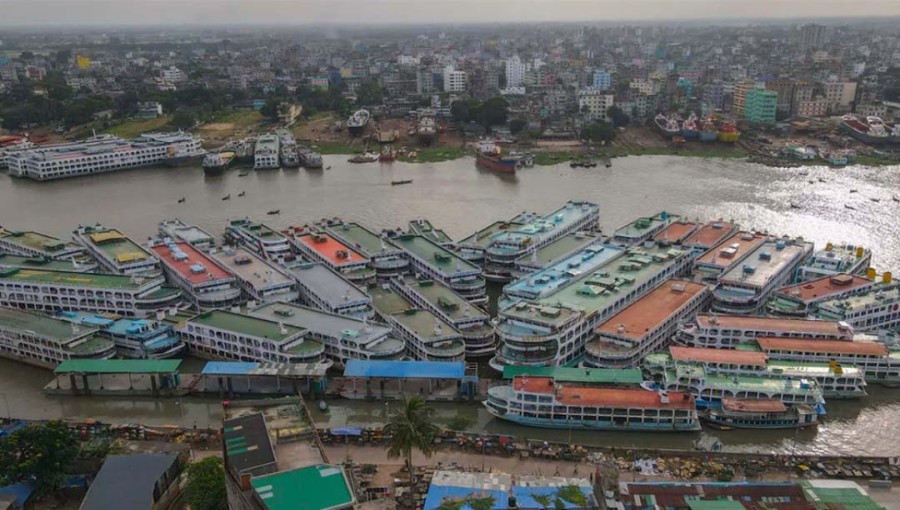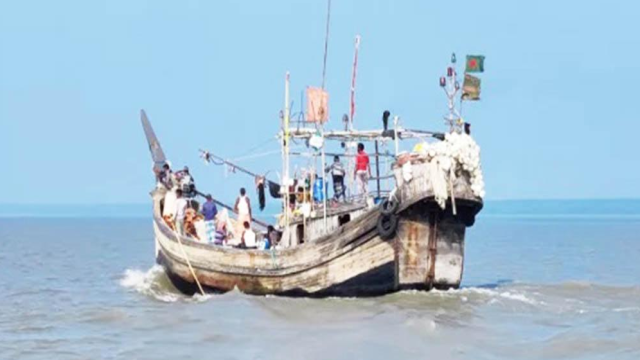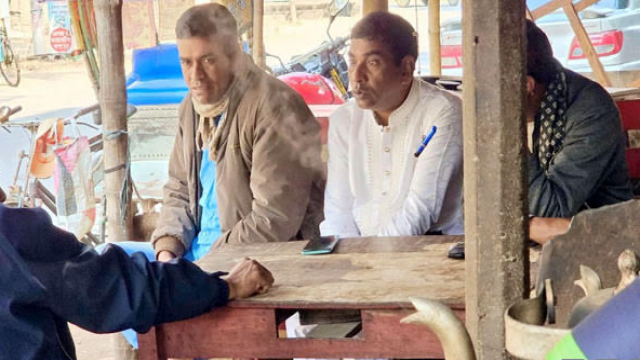Hundreds of launches and various sizes of cargo and passenger trawlers operate daily from Sadarghat Launch Terminal, Dhaka's primary river port. However, most of these vessels are deficient in essential safety systems and fail to comply with safety regulations.
Despite occasional raids and fines by the Bangladesh Inland River Port Authority (BIWTA), safety awareness remains low, and passengers continue to travel under hazardous conditions.
Experts attribute the lack of maritime security to ineffective law enforcement and insufficient supervision. They suggest that timely updates to existing laws and proper planning could transform the country's waterways into a safe, cost-effective, and reliable communication system.
Thursday marks National Maritime Safety Day, yet Bangladesh's riverine waterways remain perilous. According to the annual accident monitoring report by the Bangladesh Jatri Kalyan Samity, there were 148 waterway accidents last year, resulting in 91 deaths, 152 injuries, and 109 missing persons.
Observations at Sadarghat reveal a decline in passenger traffic on launches for the Barisal route since the construction of the Padma Bridge, which improved road connectivity between the capital and the southern part of the country. However, demand for launches on the Bhola, Chandpur, Munshiganj, and other routes remains steady.
Engine-driven trawlers continue to transport vegetables and other goods from various parts of the country, and people regularly travel by trawlers, often crossing the ghat on boats.
Section 62 of the Inland Navigation Act, 2019 mandates that vessels must be equipped with life-saving appliances, fire-fighting equipment, and other devices to prevent accidents like capsizing, fire, and collision. Commercial vessels are required to take appropriate safety measures, but many fail to do so.
Lack of Safety
Launch entrances are marked with capacity and safety equipment details. However, the number of safety buoys and fire extinguishers on medium launches operating at Elisha, Bhandaria, Hatia, and other Chandpur ghats is often insufficient and outdated. Additionally, launch personnel frequently lack training or knowledge about using safety equipment.
Khairul, a staff member of the Farhan-2 launch, stated, "We don't have much opportunity for training. There are no accidents at the launch. Those who are senior know how to operate the fire extinguisher."
Passengers are similarly unaware of safety measures. Raqib Islam, a passenger, mentioned, "Accidents happen several times on the launch, but we never thought about what to do in the event of an accident. I always see the buoy kept here, but I don't know how to use it." Moreover, many launches lack safety railings on their stairs.
Persistent Issues
On April 11, five passengers were seriously injured and later died when the rope of MV Tasrif-4 broke while placing another launch named Farhan between two launches at Sadarghat. Following this incident, BIWLTA conducted raids and fined some launches for not having stair railings. However, less than a month later, launches are again operating without railings.
BM Ali Akbar, a member of the Launch Owners Association, claimed, "We take all measures to prevent accidents as per the instructions given by BIWTA. Staff are also trained. But some launches have problems. We are trying to overcome them. We try to keep everything on the launch, including buoys and fire extinguishers, to prevent accidents. It is not only a matter of passenger safety but also about protecting our resources."
Trawlers and Boats Flouting Regulations
Beyond the launches, regular trawlers and boats often lack safety equipment. Trawlers typically have no buoys or life jackets and travel with two to three times their passenger capacity. Some boats have a buoy, but most do not, and trawlers lack fire extinguishers.
Khaled, a trawler driver who brought vegetables from Munshiganj, acknowledged the need for safety equipment but admitted they had not been bought. On Wednesday morning, a trawler at Wiseghat in Sadarghat was seen with at least fifty passengers.
Trawler driver Sohag said, "I don't know the capacity. I take as many passengers as possible. Sometimes there are ten people, sometimes fifty. There are always more passengers in the morning."
Engine-driven boats often dangerously carry passengers on moving launches. Passengers are taken to launches from pontoons by boat crew members who earn Tk50 to 100 in return. This practice poses a significant risk to passenger safety.
Authorities' Response
Muhammad Ismail Hossain, joint director of the Naval Safety and Traffic Department of BIWTA, stated, "We are conducting regular operations, fining launches with safety defects. Unfit launches are not allowed at the port. We ensure no excess passenger transport."
Mozammel Haque, secretary general of the Bangladesh Jatri Kalyan Samity, emphasized, "If those responsible for safety do not know the law, how will they enforce it? There are 3-4 times the number of passengers than there are life-saving equipment like buoys or life jackets. Boats are supposed to be registered every year, but many are not. Millions of boats remain unregistered."
Experts' Recommendations
Experts suggest that proper planning could make the country's waterways reliable and that amending the law to include small boats would improve maritime safety. Professor Dr. Hadiuzzaman, former director of Buet's Accident Research Institute, emphasized the need to modernize the shipping system with technology, stating, "Maritime communication has always been neglected in our country. Despite our potential, we have not given importance to our waterways. Proper planning, law enforcement, and technology are crucial."
Dr. Mir Tarek Ali, professor of navigation and marine engineering at Buet, added, "Our waterways run according to the 1976 Ordinance, which does not cover everything now, especially small vessels. The law needs to be amended to prevent overloading and ensure safety."































Comment: